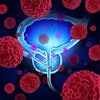
An editorial published in the January issue of the Journal of Nuclear Medicine expressed strong objections to actions by the U.S. Nuclear Regulatory Commission (NRC) to promote its alternative pathway for physicians to gain certification to administer radionuclide therapies.
Currently, the NRC requires 700 hours of training and experience for physicians with little or no background in nuclear medicine to become "limited authorized users" and partake in certain therapeutic and theranostic radiopharmaceutical activities. Now, the agency wants feedback on whether those standards should be changed. The authors already believe those requirements are woefully inadequate.
"It is absurd and grotesque to assume that this expertise can be acquired in 80 (= 2 weeks) or even 700 hours (= 4 months)," the editorialists wrote. "This expert-level competency requires years of solid training" (JNM, January 2019, Vol. 60:1, pp. 1-2).
The opinion piece is co-authored by Drs. Aria Razmaria, Jeremie Calais, and Johannes Czernin from the David Geffen School of Medicine at the University of California, Los Angeles (UCLA). Czernin also serves as JNM's editor in chief. Because the journal is independent of the Society of Nuclear Medicine and Molecular Imaging (SNMMI), the opinions of the authors do not necessarily reflect the position of the SNMMI.
The NRC began its quest for feedback regarding limited authorized users in the October 29 issue of the Federal Register. Its questions for stakeholders included the following:
- Are the current pathways for obtaining authorized user status reasonable and accessible?
- Are the current pathways for obtaining authorized user status adequate for protecting public health and safety?
- Should the NRC develop a new tailored training and experience pathway for these physicians?
- How should the requirements for this fundamental training and experience be structured for a specific category of radiopharmaceuticals?
The authors contend that the NRC is motivated by a "presumed future shortage" of qualified nuclear medicine physicians who can deliver radionuclide therapies.
They counter that scenario by citing data from the American Board of Nuclear Medicine (ABNM), which estimates there currently are 1,200 board-certified nuclear medicine physicians in the U.S. Based on the projection that approximately 150 new theranostic centers will open in the U.S. over the next few years, only 50 to 60 ABNM-trained people will be needed to fill those positions.
The authors also state their belief that money is influencing the NRC's actions. "There is evidence for significant pressure from the radiopharmaceutical industry, also at the political level, to create very broad distribution opportunities for new and emerging targeted radionuclide therapies. ... These therapies will create significant revenues," they wrote. "More authorized users and more treatment sites likely result in more treatments. This is how markets work. This is not a bad thing as long as it does not compromise quality of care and patient safety."
They also suggest "there is a direct incentive for the NRC to issue as many authorized user licenses as possible" to add to its coffers. "This is, in our view, a perfect example of a conflict of interest that cannot be managed," Razmaria and colleagues added.
The NRC has scheduled a combination webinar-public meeting on January 10 and a webinar alone on January 22 to gather more public feedback. The deadline for comment is January 29.




















